Feature: Allison Tapak, and the Parallels Between Being a Nurse Helping COVID-19 Patients and Running
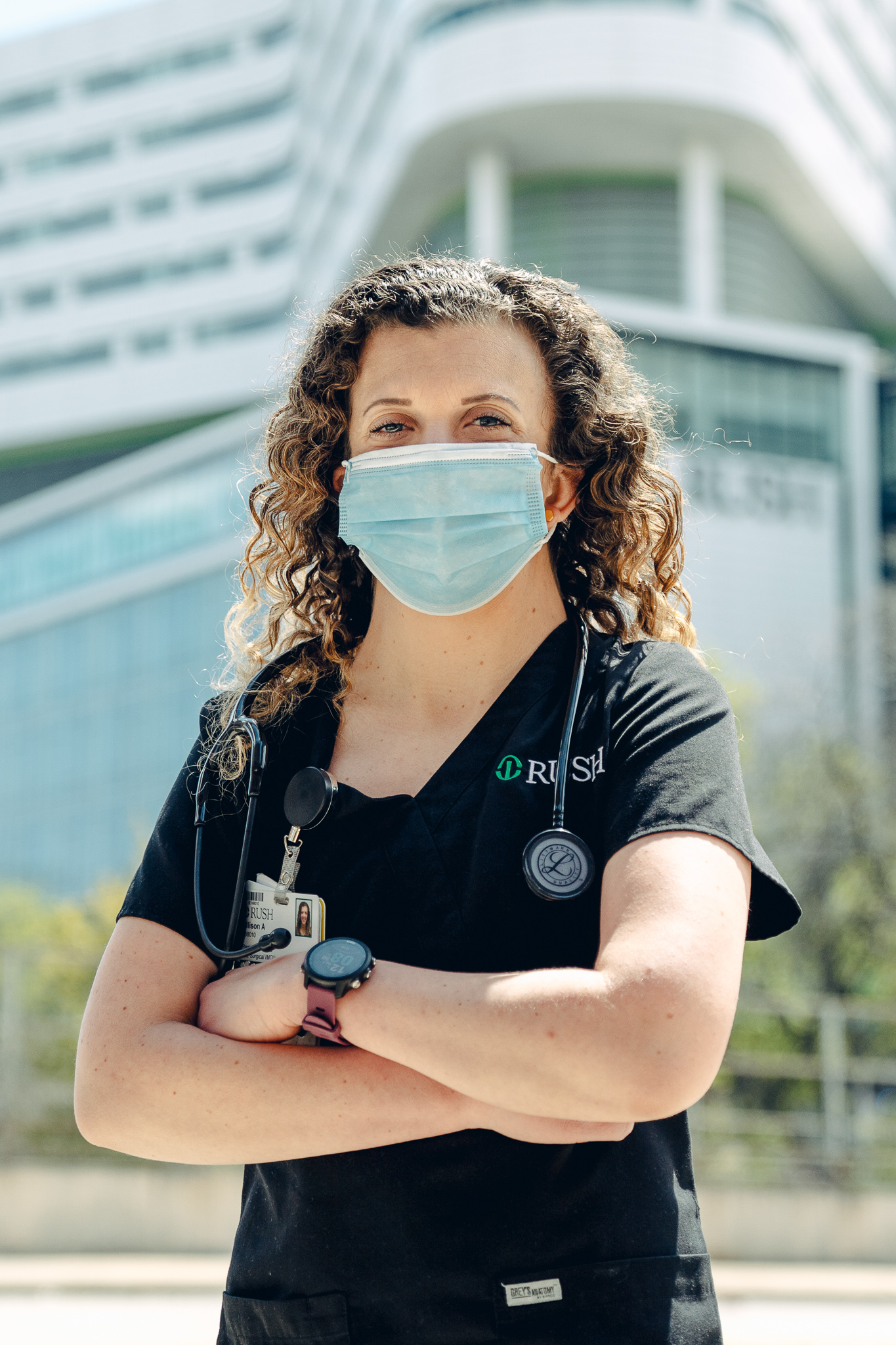
Ever since the start of the COVID-19 pandemic, we wanted to show gratitude and highlight those who are directly helping flatten the curve of the Coronavirus. Then, we heard Fleet Feet Racing Team member Allison Tapak's story.
Allison started running when she was 12 years old. She joined the Fleet Feet Racing Team in 2017 and the community welcomed her with open arms and has since completed two Bank of America Chicago Marathons (2018 and 2019). When the COVID-19 pandemic hit Chicago, her unit at Rush University Medical Center was notified that they would be taking care of the patients with COVID-19. She had mixed emotions running through her mind. One week her unit was operating normally within her surgical unit, and the next week, half of her unit was shut down in preparation for COVID patients.
To continue #NursesWeek, we found it paramount to use our platform to highlight one of our personal heroes within our running community. It felt like a no-brainer, so we hopped on a Zoom call to hear more about her experience.
We, along with Allison, ask that you please consider donating to one of the three COVID-19 support funds at Rush University Medical Center. Support from Rush’s generous community can have an immediate impact on the work of their coronavirus response team and on the populations they serve. And now, thanks to the generosity of two anonymous donors, all gifts to Rush's COVID-19 response will be matched, dollar-for-dollar, until they reach $1 million raised.
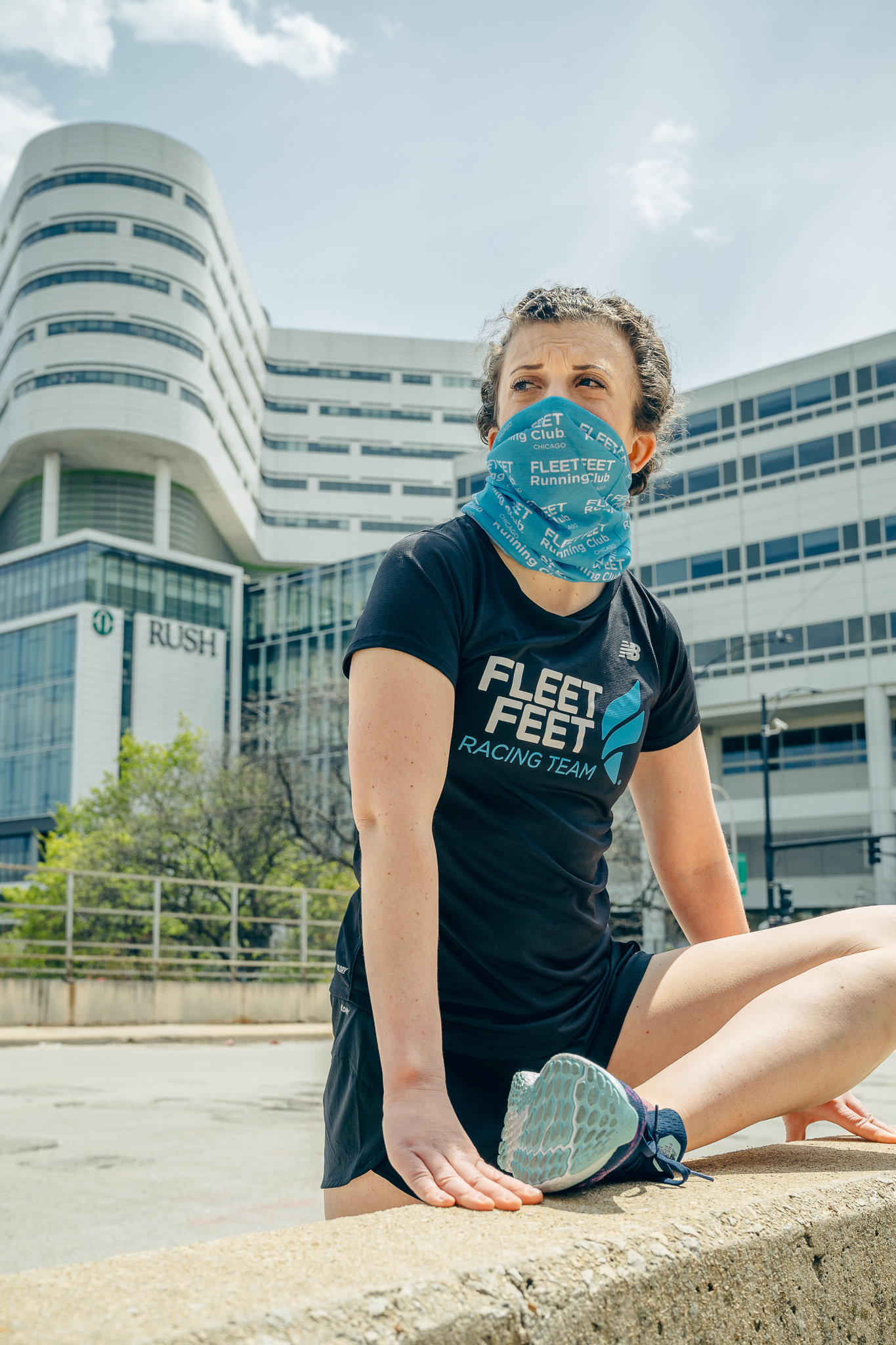
You mentioned you work in a Surgical Intermediate Care Unit at Rush University Medical Center. When I read “surgical” I don’t necessarily think “respiratory” or “illness”. How did you start working with COVID-19 patients and what does your unit provide for them?
Half of our unit got switched to taking care of COVID-19 patients in March and since we are a surgical intermediate care unit, we still have room for emergency surgery patients and since elective surgeries have been cancelled, we have extra beds available to take care of COVID patients.
Working 12-14 hour shifts is draining physically, not to mention mentally, yet, you still seek running as an outlet. Can you talk to me a little about that and how you find the energy to find solace in an outlet that is also mentally and physically demanding?
(laughs) Sometimes I question myself too, especially when I’m training for a marathon. Honestly it just comes down to my love of running. I’ve been running for 16 years and it’s just my outlet. I was raised to be tough as nails and to love what you’re doing and to love what you're passionate about. Nursing and running are both of my passions and it’s just a great outlet and it’s something I love to do and regardless of the situation, I’ll always try to put my foot out of the door and go run and just suck it up. But there are also times that I listen to my body. I’m 28 and getting older so if there’s a day when I wake up and I feel like I just got hit by a bus, I will rest or I will do cross-training instead, such as boxing. It’s also just good motivation too for patients to see.
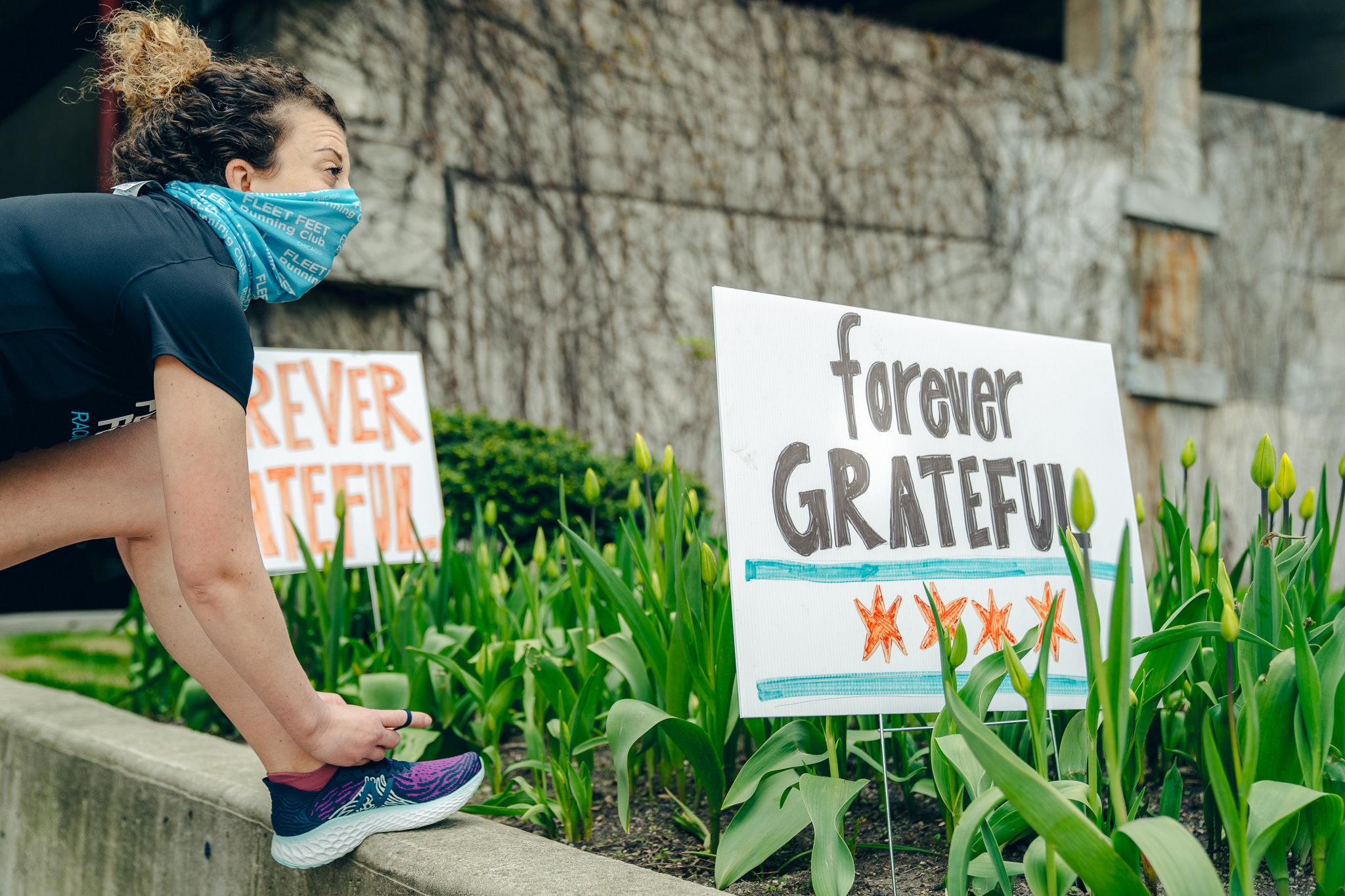
The mental toll of being there for your patients while such uncertainty for their livelihood looms overhead has to be rough on top of the physical demands of your job. Can you talk a little bit more about what you tell your patients to keep them positive and some of the struggles you and your unit have faced?
Definitely. In the back of your mind you are constantly thinking if you washed your hands long enough or getting potentially exposed. I am taking care of very sick patients, which can decompensate with a blink of an eye. There is a visitor restriction for obvious reasons, so the patients don’t have support from family and friends. The only one that’s in the room other than the doctors, are us, the nurses. We’re the ones that are in there. I always tell patients, and I tell myself too, you have to take it day by day and if you can’t take it day by day, take it hour by hour. Use the positive things that come out of the day as motivation for the bad days. You’re going to have good days and bad days and go through hills and valleys and with those valleys you go through, that you feel like you can’t get out of, you have to use any kind of positive to keep you going. Even if it's just that the patient did well with physical therapy that day. Use that positivity.
I feel like that's similar to how some people approach a marathon. There will be good miles and bad miles. Somtimes the goal isn't running 26.2 miles, it's just finishing one mile at a time. Are there any parallels or learnings between running, and more specifically, training for something such as a marathon, and your current situation?
The marathon is such a beautiful race because not only does it test your physical endurance but also your mental endurance and perspective on life. Sometimes while I’m running I just think of my family or even a patient that I take care of. As I’m having a rough mile, I think of a patient that has changed my life or put my life in perspective and that’s why I love being a nurse in the healthcare field because it really does put your life in perspective.
You know when you’re making that turn up Roosevelt Road during the Chicago Marathon and your legs are about to give out and you hear the people ringing the cowbells and clapping for you? I really try to switch those perspectives and put that on my patients so now I’m that person cheering for them at the finish line and ringing that cowbell as hard as I can to help them get through it.
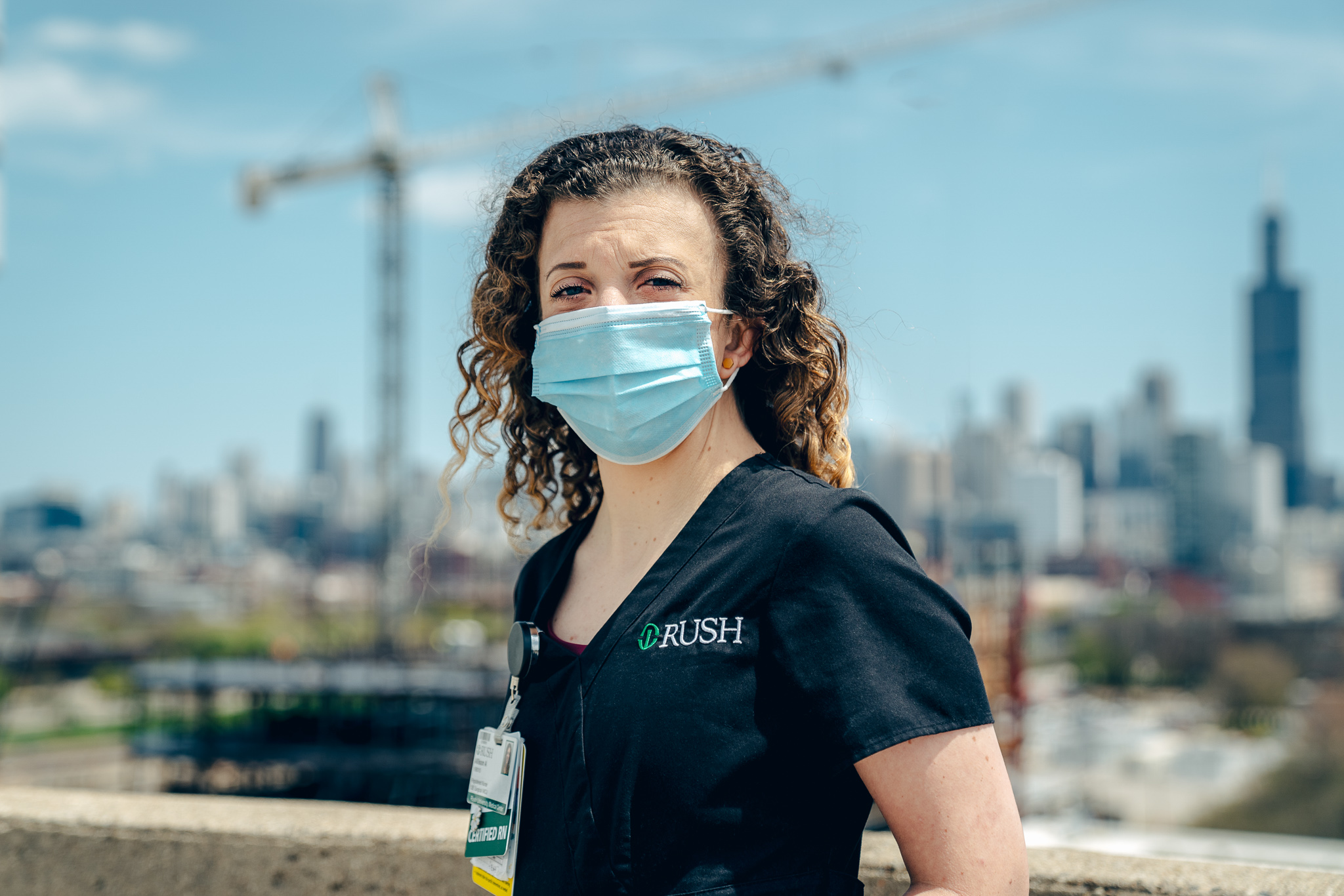
Would you say running has prepared you for working as a nurse in healthcare?
Running not only helped me achieve my goals and run many races, it has taught me countless life lessons that I carry with me when I step foot inside the hospital. Throughout my many years of running, I have become more dedicated, resilient, and disciplined. As runners, we know that running isn’t perfect just as it is in life. You are never always going to have the perfect run or the perfect running weather. You are going to hit “the wall” once in a while, and you need to find every ounce in you to keep putting one foot in front of the other. As a nurse, I use this mentality for myself, and patients that I take care of.
When the pandemic started and the economic and social turmoil kind of set in, I for one felt this feeling of helplessness. People around me were losing their jobs and even losing loved ones, yet all I could do was to adhere to the shelter-in-place order. When my birthday rolled around in mid April, I wanted to help gather donations to healthcare workers to ensure they could receive the appropriate equipment to stay safe. I found that this was easier said than done and all of the country’s PPE is owned by private companies and purchased by the government. So, with that being said, how can someone directly help or support people like you who are on the front lines?
We don’t ask for much and we’re just gracious for anything. When I go run, I’ll see signs that say “thank you healthcare workers” and it’s just a heartwarming thing to see. Little things like that will help. A lot of families and local restaurants have been donating food to our units for lunch so we don’t have to think about packing a lunch. The hospital is also doing some great things where people can donate money to multiple response funds. They have the Rush COVID-19 Response Fund, which helps with meals and PPE and other services for frontline staff. Also, since we are a teaching institute, we are very involved with research and evidence based practice and implementing new healthcare protocols, so they have the Rush Coronavirus research fund which helps speed up the ability to research and study the coronavirus because we really don’t know much about it. They also have the COVID-19 Student Relief Fund which helps students that are at the hospital who are facing financial hardship due to the virus because it’s hard going to school and not working much. It makes me proud to work at such a great institution that is not only helping the hospital but the students that go there.
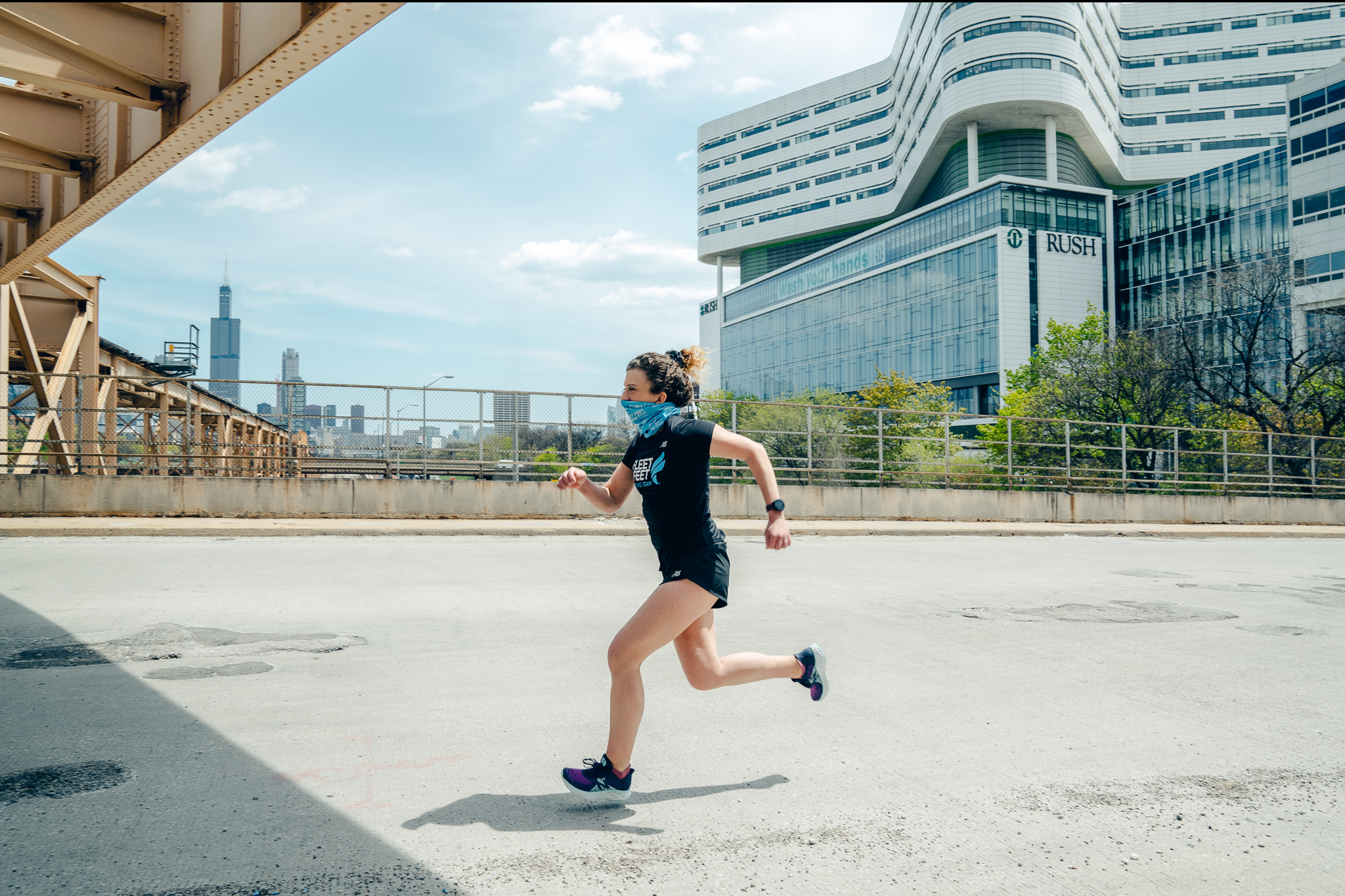
You mentioned Rush University Medical Center has been outstanding with their support. That’s so comforting to hear because it’s not the usual story I hear when listening to podcasts about others in New York City who actually have to furlough some employees because of the triad of increased hours to keep up with the demand, decrease in other surgeries and procedures that cannot be done, and the increase in those needing hospital services but have no healthcare due to unemployment. What has the hospital been doing to support you?
They’ve been so phenomenal with everything. The higher-ups, they’re not experiencing what we’re going through but they’re always trying to understand and be there as a support system just as us nurses are being a support system for the pateints we are taking care of. The hospital has been writing positive little quotes written in chalk on the sidewalks and parking garages and they connect with local restaurants to help us with meals so we don’t have to worry about bringing a lunch. Rush University has been up to date on statistics on COVID-19 patients and implementations and they have a task force that meets twice a week and we constantly get emails and updates about what’s going around the hospital. It’s nice that they are being transparent and letting us know what’s going on.
They’re also doing a great job recognizing positive things. We recently discharged our first ECMO (extracorporeal membrane oxygenation) patient. Since the Coronavirus is a respiratory virus, it affects your lungs and your lungs send blood to your vital organs. If the Coronavirus gets so bad that the patient is inundated and their organs can’t function properly, they have an ECMO machine that does that, and it’s very fatal and it’s very scary to be in that situation, and for a patient to come out of that and be discharged home, it’s such a great thing to see.
Rush Hospital has been giving any healthcare worker free parking, which is really nice. That just goes to show that they’re not only concerned about my safety in the hospital but they’re also concerned about my safety outside of the hospital.
Has your running changed during this time?
I think so. I’ve been noticing that I’ve just been more tired than usual. I think it’s just that stress of going to work and whatnot and you can’t help that sometimes but I try to focus on the therapeutic benefits. The races I wanted to run are cancelled so things have definitely changed a little bit.
Connect With Us
see the latest from Fleet Feet Chicago